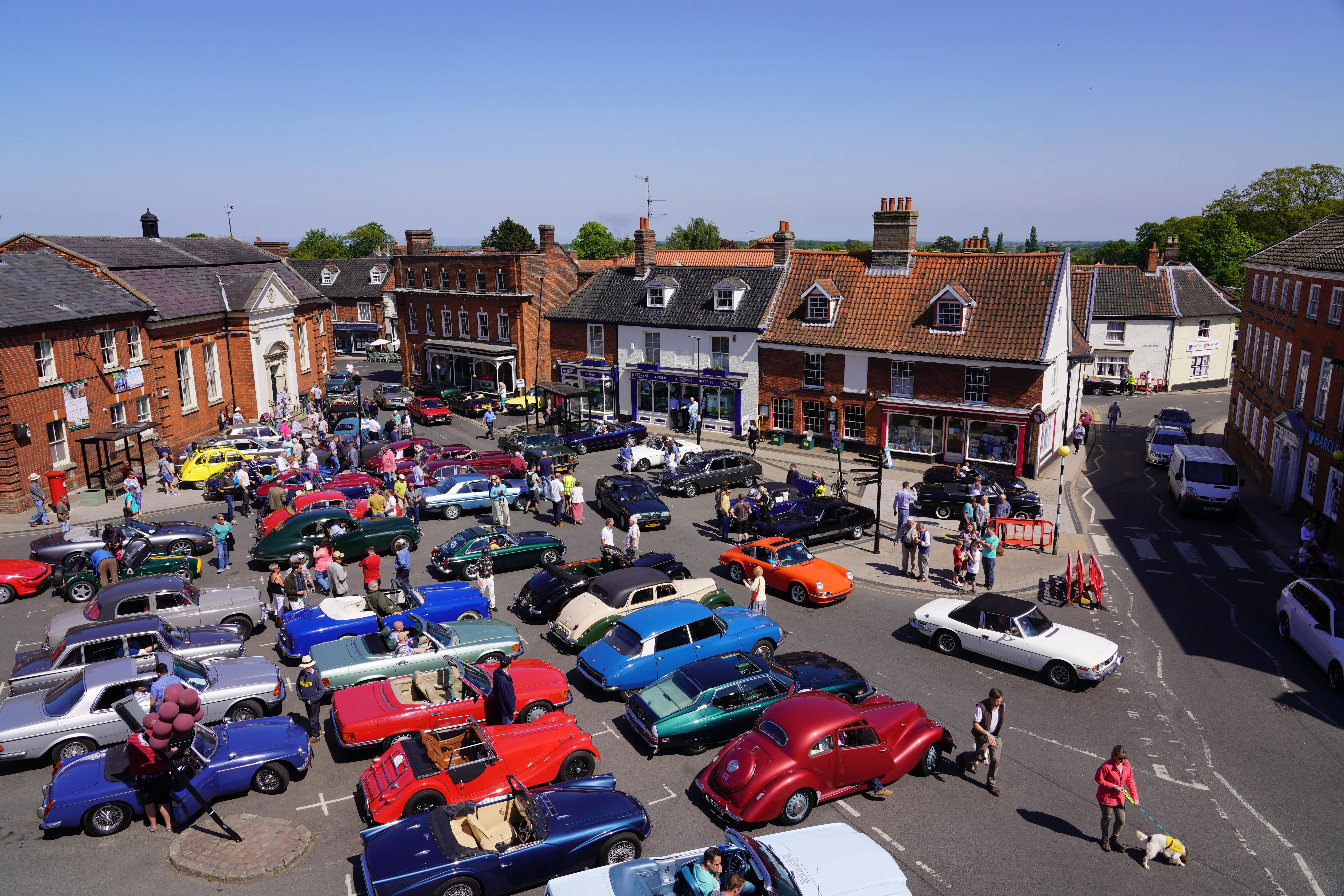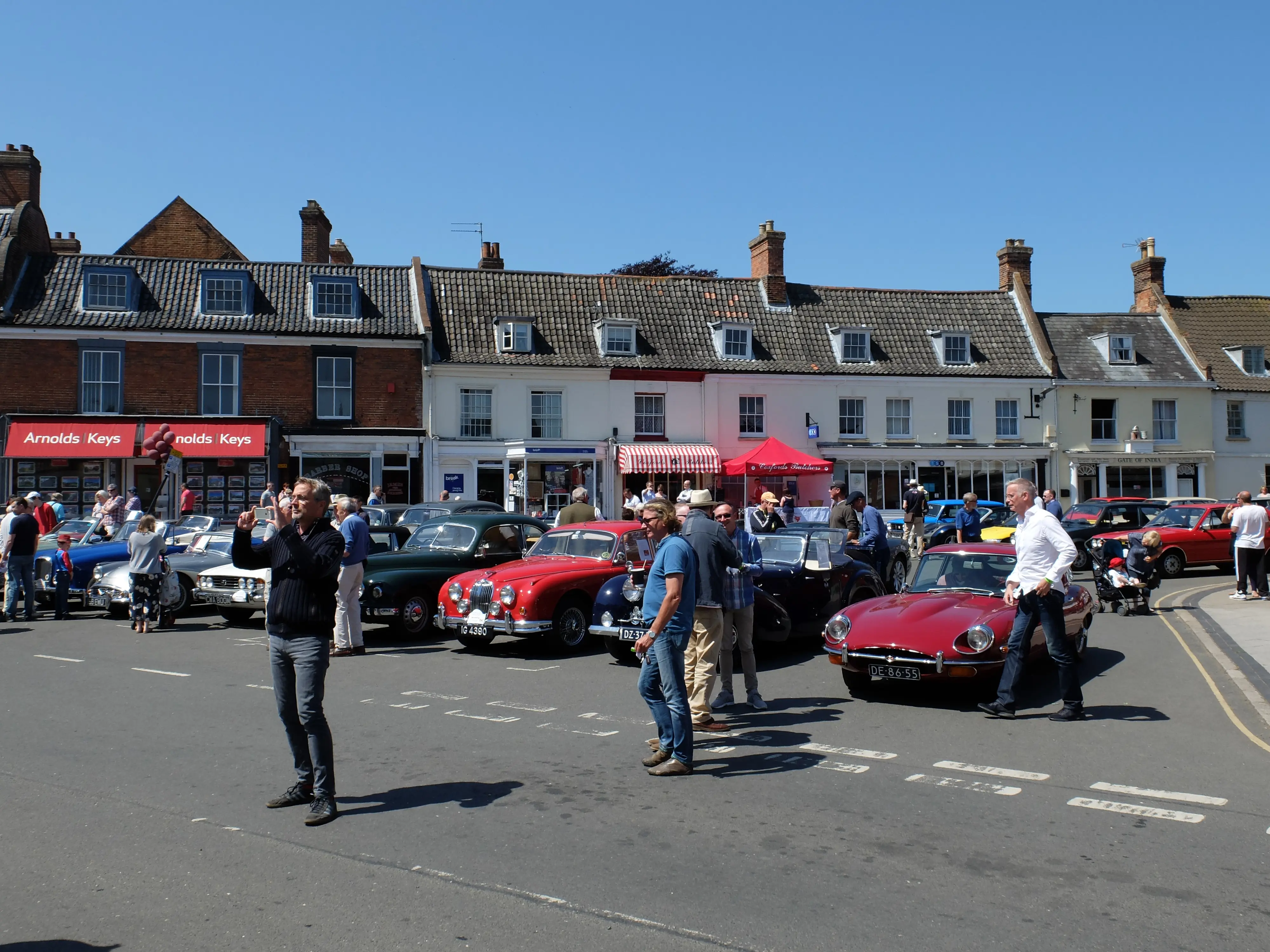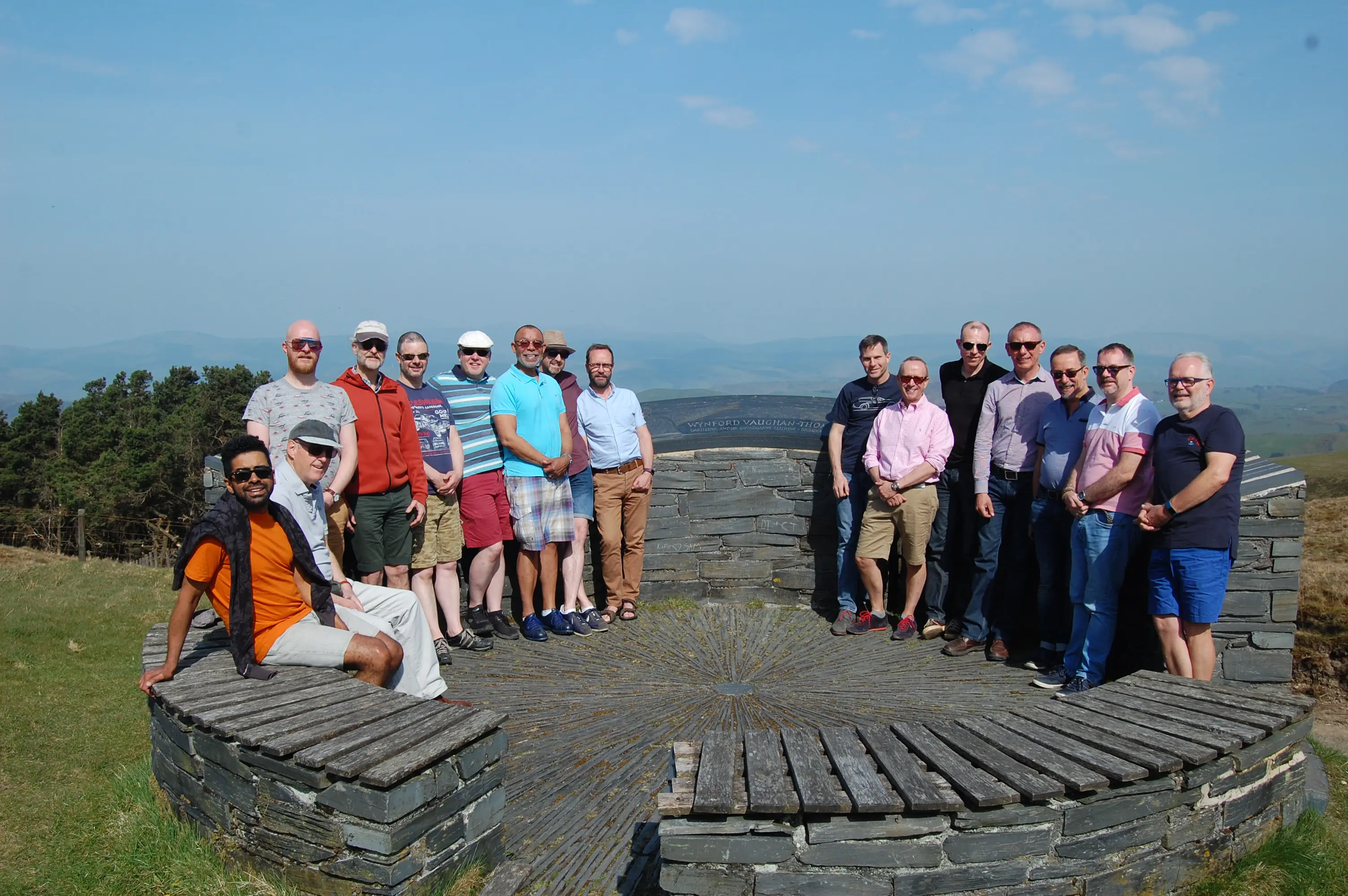PRIDE IN HISTORICS: THE GAY CLASSIC CAR CLUB
27 February 2023
Classic cars insulate us from the world and its troubles. The chance to enjoy shared interests with like-minded people is a welcome respite; unfortunately, the LGBTQ+ community isn’t always afforded the same opportunity.

‘The GCCG was founded back in 1988 when the classic car and gay world was a very different place,’ recounts the club on its website. 35 years young during Pride Month 2023, the Gay Classic Car Club (GCCG) was formed to give LGBTQ+ historic vehicle enthusiasts a safe space.
There was caution in the early years, explained Darren Mitcham, Press and Publicity, GCCG, but the committee’s worries proved unfounded.
‘It was one of those lightbulb moments sat in the pub […] several friends in West London had classic cars and thought “we should probably do a little run”, so they went from London to Brighton, met up with some friends of theirs and thought, “this was quite good fun”. It felt quite relaxed, you didn’t have to put any airs or graces or pretend to be someone you weren’t,’ Darren said.
‘That’s how it was through the Nineties with a photocopied magazine and probably around 100 members. It didn’t really change much; it was quite closeted, with the magazine [sent] in a brown paper envelope and a PO Box in the Gay Times.’
It wasn’t to stay that way, however: ‘It was the early 2000s [that the club] began to become more confident,’ Darren explained. ‘I started doing press releases in 2003, and there were some very nervous looking people on the committee saying things like, “I don’t think the press would want to know about the things we do” […] we sent some press releases out and they were well-received.
Every release I sent out [appeared in] the press or one of the classic car papers. I thought, “Oh, OK, people do want to read about us”; no-one ever came back and said “no thanks, sorry, not really for us”. The big turning point was in 2005 when we went to the NEC Classic Motor Show in Birmingham […], that was the first big public facing event.’

The GCCG had previously done large events for its members and appeared at that year’s Brighton Pride ‘but that was a fairly non-controversial audience in terms of LGBTQ+’, said Darren, weren’t that interested in the cars.
Although nerves were frayed in Birmingham before the show opened, the reaction from the public at large, Darren said, was ’95 per cent positive […] you had the odd cheeky chappie [or] cheeky teenager giggling and nudging his friends but really not much at all [otherwise], and as for the other car clubs, you couldn’t have wished for a better reception. [We were next to] the Rover P5 Owners’ Club, they were traditional gentlemen, but they were fine coming along on our stand and looking at our cars.
That was quite an eye-opening moment. You realised that you didn’t need to hide, and about the same time we got our first website and email was taking off as well […] we weren’t having to post every single thing out. The early to mid-Noughties was the biggest transformation for the club and consequently we grew really rapidly, up to five or six hundred members.’
The GCCG returned to Birmingham in 2008. ‘That [show] was pretty similar, Darren confirmed, in terms of reception and membership uptake. ‘We’ve done [the Lancaster Insurance Classic Motor Show] every year for the last ten years because people insist on doing it, but we barely get any members from it any more. Since 2010 social media came in […] having a Facebook group and having visibility [there] brought in more people. They weren’t joining us at the car show, they’d already seen us.
[The NEC is] a big ask but people are very devoted. It has a good social aspect, and is good meeting place; people love it.’ The GCCG has since appeared at the Practical Classics Classic Car and Restoration Show; Darren confirmed that the split of members willing to fix their own cars is about 40 per cent, with others relying on specialists to keep their classics roadworthy.

In recognition of members’ efforts, the National Car Club Awards gave the GCCG its best larger stand award at last year’s Restoration Show, adding to the 2019 Club of The Year top award given at the Lancaster Insurance Classic Motor Show.
No one marque has prominence in the GCCG across its 15 regions, and ownership of a historic vehicle isn’t required to join. Large individual collections are common too, with many people owning 10 classics or more, with a few caring for collections of 50 or more cars. Owing to the diversity of machines within the club – of which there’s no age cut-off – it’s not uncommon for magazines and production companies to approach the GCCG for metal to feature. Aside from local meets, the club recently hosted its first track day, and plans to do more.
So what, then for the future? With around 1100 members currently, the GCCG continues to flourish. ‘The LGBTQ+ community is accepted in the various clubs [local, regional and national] Darren wondered ‘if our numbers would start to dwindle a bit, but they don’t seem to be doing, you keep getting a huge variety of cars.’
The GCCG’s big event this year will be Eurotour, hosted every five years in the UK with European partner clubs, with each club visiting the other’s country concurrently. Darren said: ‘It’s [currently] 120 people and that will be people from Australia; France, Germany and the Netherlands […] people do also fly in from America,’ Darren said, describing Eurotour 2023, a three day gathering hosted in Leeds, as 'extensive and glamourous […] there will be fireworks and cakes [to observe 35 years of the club].’
